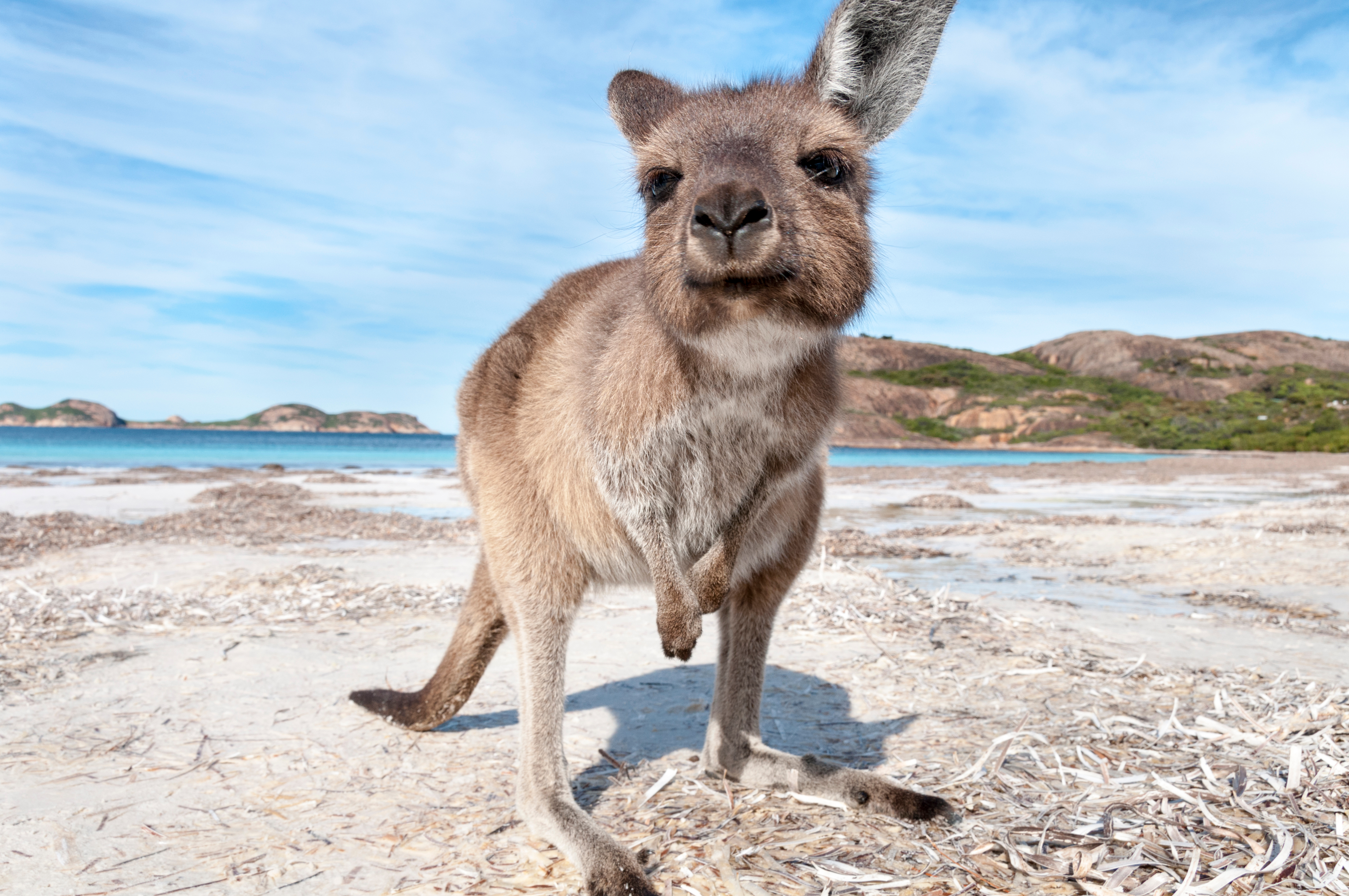Share This Article
Poppy Morandin.
Two teens have been charged over the deaths of 14 kangaroos on New South Wales’ South Coast.
Animal welfare volunteers from the organisation ‘WIRES’ were left devastated after discovering the 14 animals that were allegedly beaten to death.
A sole joey survived and is currently recovering with the help of volunteers.
Two teenaged boys have subsequently been charged after allegedly deliberately killing the kangaroos which were found across two separate beach locations near Batemans Bay last weekend.
Police report that they were called in the morning to Long Beach near Batemans Bay, after receiving reports that several kangaroos had been killed.
WIRES volunteers were called to help the officers locate the animals.
They discovered five adult kangaroos and one joey dead on Blairs Road and Sandy Place, and a further seven kangaroos and one joey dead in the nearby Maloney’s Beach area.
One surviving, but injured, female joey was found on Maloney’s Beach.
She has been doing “surprisingly well” under the care of WIRES volunteers after being “pretty much lifeless” on arrival, as reported by Janelle Renes, chair of the Mid-South Coast Branch of WIRES.
The volunteers have named the joey ‘Hope’, and she is now staying with another young joey named Hopper, who is also in the volunteer’s care.
Following investigations and a public appeal for information, officers arrested two 17-year-old boys at the Batemans Bay Police Station.
The pair were charged with recklessly beating and killing an animal and are due to appear at a children’s court on Friday 22 November 2021.
Animal Cruelty Offences, Defences and Penalties in New South Wales
Pursuant to section 5 of Prevention of Cruelty to Animals Act 1979 (NSW), a person shall not commit an act of cruelty upon an animal.
Animals are defined by section 4(1) of the Act as a member of a vertebrate species, including any:
- amphibian,
- bird,
- fish,
- mammal (other than a human being),
- reptile, or
- a crustacean, but only when at a building or place (such as a restaurant) where food is prepared or offered for consumption by retail sale in the building or place.
Cruelty is defined by section 4(2) of the Act as where an animal is unreasonably, unnecessarily, or unjustifiably:
- beaten, kicked, killed, wounded, pinioned, mutilated, maimed, abused, tormented, tortured, terrified, or infuriated,
- over-loaded, over-worked, over-driven, over-ridden or over-used,
- exposed to excessive heat or excessive cold, or
- inflicted with pain.
The applicable maximum penalty is an $27,500 fine in the case of a corporation and a $5,500 fine and/or 6 months in jail for individuals.
It is not a defence that the person in charge of the animal allowed the act, as they are unable to authorise the commission of an act of cruelty.
The Act prescribes that a person in charge of an animal shall not fail at any time to exercise reasonable care, control, or supervision of an animal to prevent the commission of an act of cruelty upon the animal.
It states that where pain is inflicted upon the animal, those in charge must take such reasonable steps as are necessary to alleviate the pain and to provide it with veterinary treatment where necessary.
Pursuant to section 6 of Prevention of Cruelty to Animals Act 1979 (NSW), it is an offence to commit an act of aggravated cruelty upon an animal.
Aggravated cruelty involves where cruelty upon an animal results in the death, deformity or serious disablement of the animal, or the animal being so severely injured, so diseased or in such a physical condition that it is cruel to keep it alive.
The applicable maximum penalty is a $110,000 fine in the case of a corporation and a $22,000 fine and/or 2 years imprisonment for individuals.
Defences to being charged with an offence of animal cruelty include those outlined in section 24 of the Act.
These include situations in which a stock animal is ear tagged, a pig is castrated, a goat is dehorned, or where an animal is being prepared for ‘destruction’ for the purpose of producing food for human consumption, in a manner that inflicts no unnecessary pain upon the animal.
Animal cruelty is also criminalised under the Crimes Act 1900 (NSW).
Section 530 states that a person is guilty of an offence if they, with the intention of inflicting severe pain, torture, beat or commit any other serious act of cruelty on an animal.
This action must result in the death, serious injury of the animal or have caused prolonged suffering to the animal, to make the offence.
A maximum penalty of 5 years imprisonment is applicable.
However, if it is found that a person was reckless as to whether severe pain is inflicted, in the above scenario, a maximum penalty of 3 years imprisonment is applicable.
Questions? Get in touch with our Criminal lawyers in Sydney today.









